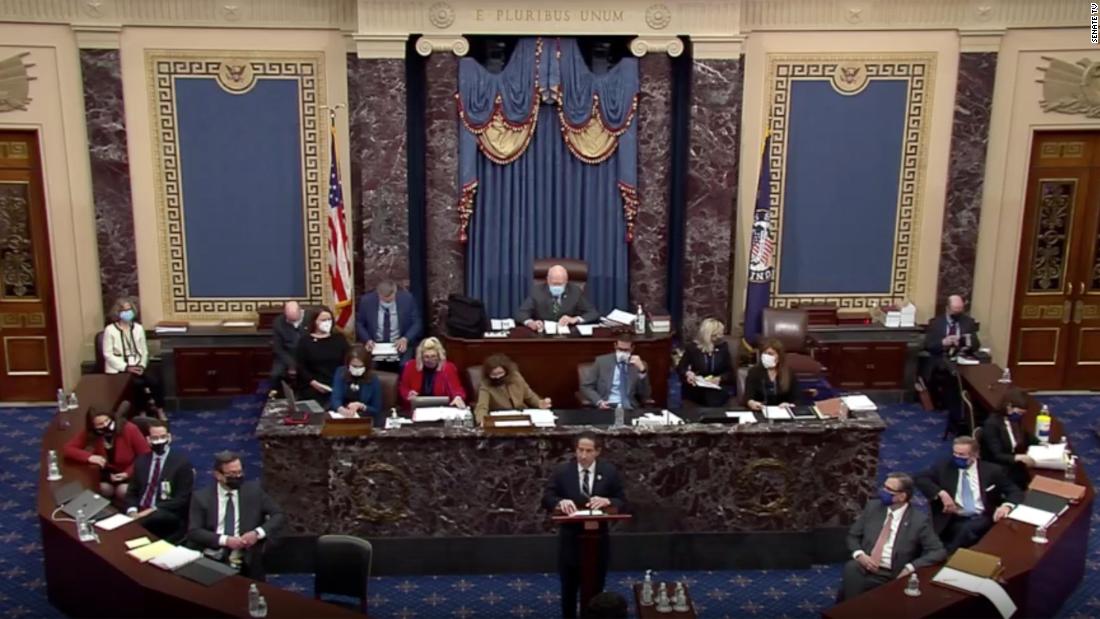Analysis: Six takeaways from Trump’s impeachment trial
House Democrats forced Trump’s second impeachment, presenting a compelling case that he incited an attack on the Capitol, and driving a wedge between Republicans willing to look the other way versus those abhorred by Trump’s behavior.
Finding enough Republicans to convict Trump was still going to be a high bar and the Democrats would have had to offer Republicans a chance to call their own witness. But rather than push ahead and exploit the opening, Democrats decided to enter a written statement from Herrera Beutler into the record, allowing the impeachment trial to proceed toward Trump’s expected acquittal.
Having the trial over will help Biden get down to business. But it will leave Americans who hoped Trump could be blocked from future political office wondering what might have been if Democrats had been a little more ruthless in their protection of the Constitution.
The GOP is still Trump’s party
Seven Republican senators voted that Trump was guilty of incitement, but most Republicans argued that the trial itself was unconstitutional because Trump was no longer president, saying that fact trumped any evidence presented during the trial.
Twitterless Trump is a much quieter force
A pianist who can’t play, a soprano who can’t sing and Trump without Twitter share silence. He hasn’t been heard from directly since retreating to a sort of self-imposed post-election exile at his private Mar-a-Lago club in Florida.
So one of the jarring elements of the trial was hearing his voice again in hours of video played by House impeachment managers to make their case. Trump may still have Republican lawmakers in check, but it’s much harder for the public to know, on a moment-by-moment basis, what he’s thinking.
Republican women are profiles in courage
Profiles in courage — with a nod to the book then-Sen. John F. Kennedy wrote about former Senate colleagues — here means willing to stand up to the party and buck convention. Politicians are most interesting when they’re standing up for something that’s hard to stand up for.
It should not go unnoticed that among the key Republicans who stood up to Trump were several key women. Wyoming Rep. Liz Cheney saw her status as the No. 3 Republican in the House threatened when she voted to impeach Trump. Herrera Beutler, who also voted to impeach, put out a statement rejecting his lawyers’ defense as completely incorrect.
Among the Republican lawmakers poised to vote to convict, the moderate Sens. Susan Collins of Maine and Lisa Murkowski of Alaska were among those lining up with Romney and Sen. Ben Sasse of Nebraska.
Mitch McConnell is not a profile in courage
After voting to acquit, he offered a stunning rebuke of Trump’s behavior during a speech on the Senate floor, dismissing Trump’s conspiracy theories and blaming Trump for the riot. But he argued it was inappropriate to vote for impeachment because Trump was no longer in office, essentially trying to have it both ways on a technicality.
This is not the end of the story
Trump’s acquittal won’t be the end of accountability for the riot his words helped cause or his attempts to overturn the election. There are hundreds of cases pending for rioters, and their cases have begun to weave his words into arguments.
Prosecutors in Georgia have opened a criminal investigation into Trump’s effort to influence election results.
None of those cases, even if they lead to convictions, could bar Trump from future office like impeachment. But they are sure to keep the riot in the public eye.
This story has been updated.
![]()


